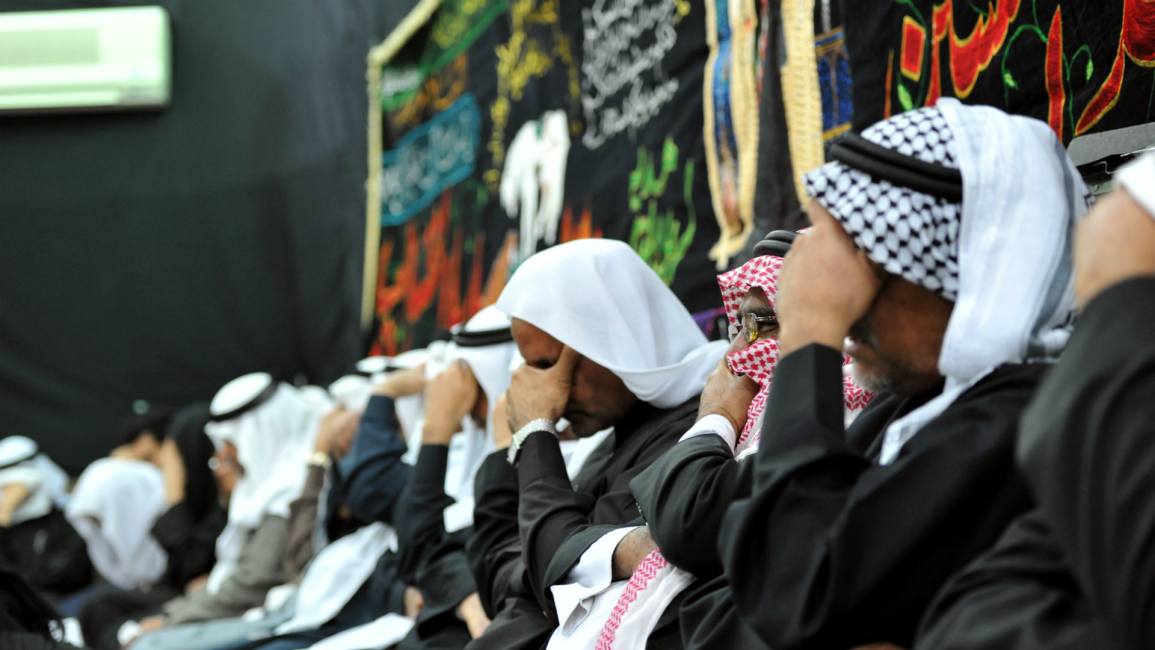
The Shia question in Saudi Arabia
The terrorist attack carried out by a Salafi group on the Mustapha Hussainiyah Shia meeting place in al-Ahsa city last Monday, has returned the Shia minority in Saudi Arabia to the spotlight.
The attack killed nine people. Several were injured. During a pursuit, two members of the security forces were also killed. This came just as Saudi Arabia's Shia community was beginning to catch its breath after the waves of protests that accompanied the Arab Spring.
To a degree, the Saudi Shia question is similar to the issues
| The death sentence imposed on Nimr Bakir al-Nimr exacerbates a lack of trust in the government. |
facing religious minorities around the world who are often marginalised.
But the widespread vilification of the Shia in Saudi Arabia today is severe and this animosity comes at a time when the region is undergoing a wider Sunni-Shia struggle.
The recent uprising in Saudi Arabia's Eastern Province brings back memories of the 1970s, when religious restrictions and discrimination against them provoked extreme anger among the Shia. Their anger took the form of demonstrations that ended in bloody clashes with security forces.
More than thirty years have passed since then, and the relationship between the Shia and the government has changed. Many Shia opposed to the government have returned from abroad and agreed to work under restrictions in the public sector. Reforms to the religious status of Shia have eased tensions in certain regions, but there still remains a lack of trust.
Improved circumstances
This lack of confidence is all about government attitudes to Iran. This remains inresolved and prevent Shia from securing the same rights as other Saudi citizens.
The most recent confrontation is different to past clashes in terms of the numbers of people involved. The fact that small improvements in the economic, social, and religious circumstances of Saudi Arabia's Shia slightly tempers anti-government feeling.
But as well as the heinous attack on al-Mustapha, the death sentence imposed on the Shia cleric Sheikh Nimr Bakir al-Nimr exacerbates a lack of trust in the government. Today, we are on the brink of a new stage in the relationship between both sides that will have great repercussions for the kingdom’s future.
The general reaction to the attack shows that Sunni society does not condone such actions even when Shia are the targets. And the government's response, as well as that of influential religious institutions, demonstrated sound judgement by publicly refuting any supposed justification for the attack.
Two futures
Crises often give way to solutions, and all possibilities remain open as long as civil wars blight the Arab world and regional competition is informed by sectarian conflict.
The first possible future is an acceptance of the storm that rages on the kingdom’s northern border. Takfiri (apostate-accusing) groups will continue to instil fear in the populace, and people will go on with life never knowing when the next terrorist attack will occur or who its victims will be. Reforms are left in God’s hands and an environment that nurtures criminals continues.
The second possible future is that an opportunity to develop reasonable solutions is seized to allow hope to enter the relationship between the country's ruling elite and the Shia minority. Any move that could engender confidence among the Shia in the state and its institutions would only strngthen the country as a whole.
Historically, relations between Shia communities and the authorities have also been managed by mediators; people the authorities considered represent the wishes of the Shia as a whole. This has been policy for decades but is predicated on the premise that the Shia minority is a monolithic bloc.
Past experience, however, and the situation at hand, proves that there are conflicts of interest, turf wars, and class rivalries within the Shia community. That policy may need to change.
Saudi Arabia is at a crossroads. This is the first time that the Shia minority has been targeted by al-Qaeda and other groups on a sectarian basis.
The government needs to deal with the consequences of this attack through a reform initiative. It alone has the power to engender in the Shia community a greater level of trust in its institutions.
This article is an edited translation from our Arabic edition. It was first published on 13 November.
Opinions expressed in this article remain those of the author, and do not necessarily reflect the opinions of al-Araby al-Jadeed, its editorial board or staff.



